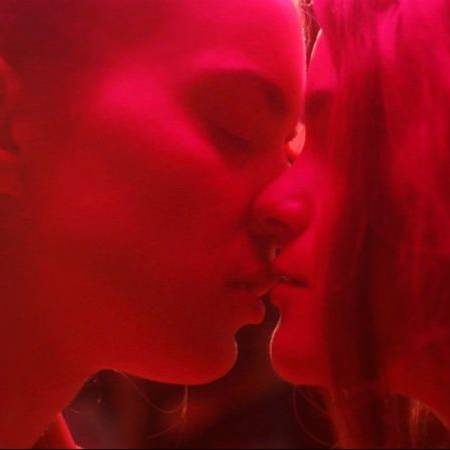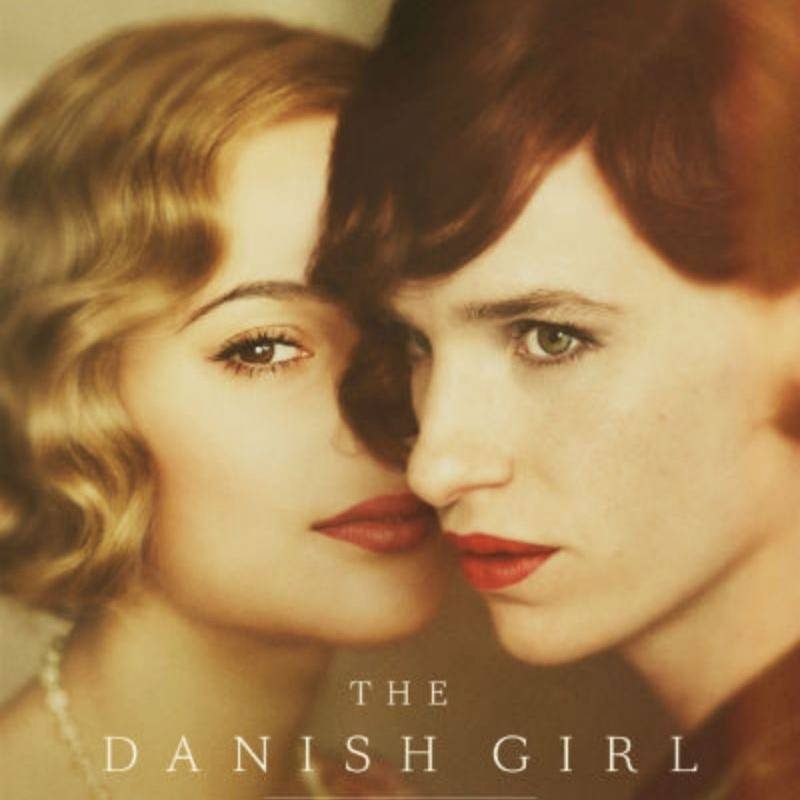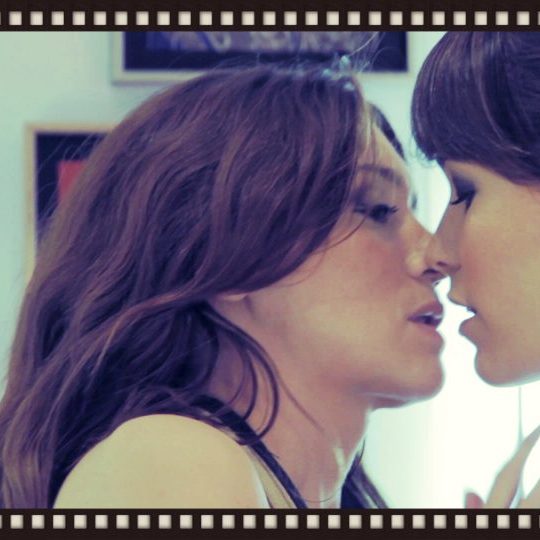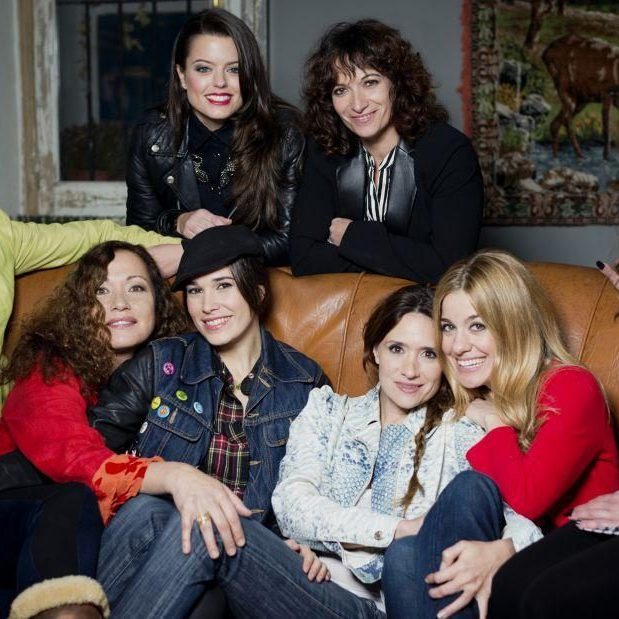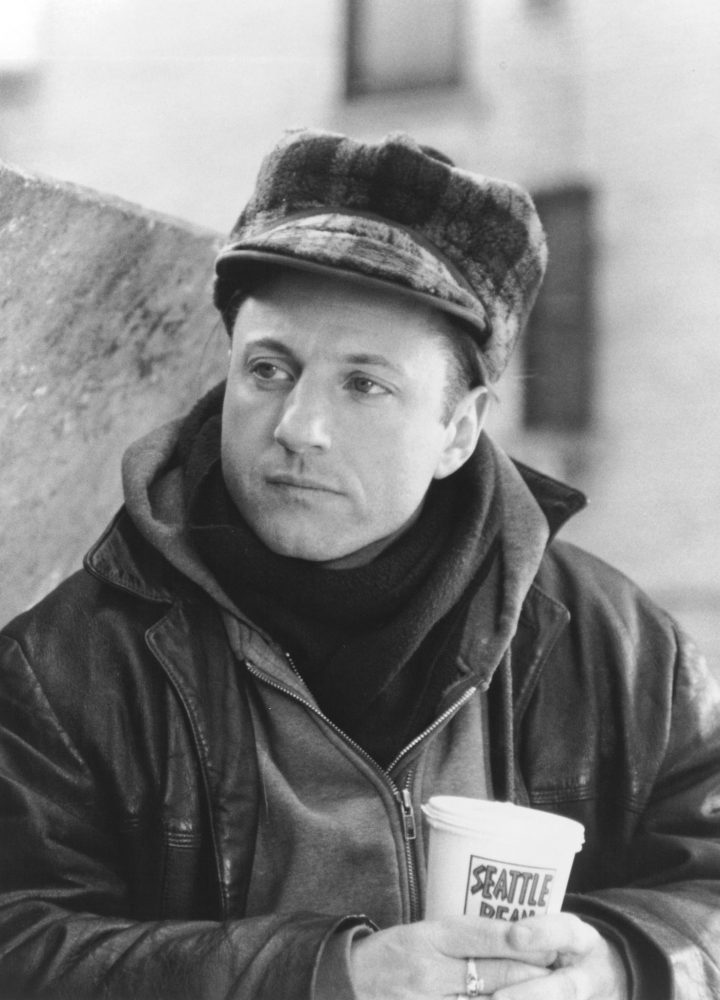
Director Eric Schaeffer shows us how to live and how to love while being who we are.
Boy Meets Girl is as bold as they come. Dozens upon dozens of films have been made to meet the needs of the gay and lesbian demographic but there hasn’t been such a film for our transgender audience that has such a poignant plot and message quite like this cinematic piece.
Making her screen debut, in the role of a lifetime, Michelle Hendley portrays Ricky, a 21-year-old fashionista trans girl who lives in Kentucky and serves up lattes to the locals by day while striving to get to the Big Apple and become a designer by night. Her straight and best friend, Robby, has stuck by her side since the very beginning. When a newcomer, Francesca (played by the stunning Alex Turshen), turns Ricky’s head, sparks begin to fly and memories resurface.
Boy Meets Girl made the festival rounds last summer, picking up various awards almost everywhere it went. It says a lot about the importance of the story and how much the actors strived to bring truth to it.
We caught up with its director and cast for a look behind the scenes of this groundbreaking film
What sparked the idea for you to write Boy Meets Girl?
Eric: Thematically, this film deals with what most of my previous work has dealt with.
I changed the cosmetic landscape of this film’s plot, characters, casting and location in an effort to use a fresh lens to explore these themes that continue to be important to me. My hope with this film, as with my previous work, is that if there is one message taken away, it’s that the illusion of separateness has to be smashed so that we can embrace the truth that fundamentally, where it counts most, we are all the same.
Regardless of sexual orientation, gender (trans or cis) race, religion, or any other label, we want to love and be loved, accepted for who we are by others and by ourselves.
By knowing and accepting who we truly are, we can all love ourselves and each other easily and happily, knowing there is nothing to be scared of because we are all one. Our personal preferences, styles, likes and dislikes are all just cosmetic and don’t threaten anyone else.
They are just surface designs on the fabric of our unified singular spirit of humanity and therefore can and should be honoured and exalted, rather than cause fear and hatred.
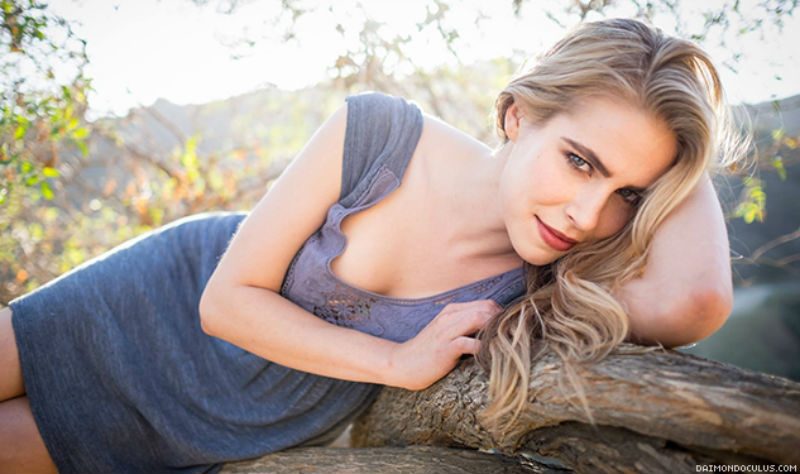
Do you think you could compare your life to that of Ricky’s at all? Are there any similarities? Differences?
Michelle: Certainly. Ricky is a much more guarded person than myself and has experienced more tragedy in her life.
She carries herself with an edge, while I am much more of a ditz than I would care to admit. However, I can absolutely relate to her in terms of the struggles of gender transition and dating.
We both come from a loving family and community, but I can’t sew to save my life.
How do you think you identified with your character Francesca?
Alex: I have a lot in common with Francesca, actually, so I was really excited to book the role. Franny is definitely a girl with layers:
A big smile and wide eyes don’t mean she won’t question the status quo, speak her mind or defend herself and her loved ones. She walks around with an open mind and an open heart, and sometimes that leads to confusion and heartache, but she and I would both agree that regret is a worse fate.
Also, I’ve been told I can be naïve, kind of like how Francesca comes across is in the film, and maybe it’s true… but she and I are curious about people, the world, and ourselves, so we’ll never stop growing.
How was it growing up for you and then undergoing the transition process? Did you ever experience negativity or bullying?
Michelle: I think every kid experiences some amount of bullying at some point or another.
I was definitely targeted for being effeminate, but I am fortunate to have never been beaten or ganged upon. Once I started to transition, I attracted quite a few funny looks and really strange questions (like, “You got a dick, or what?”), but I never felt in serious danger.
Columbia, Missouri, was a pretty great place to grow up and find me.
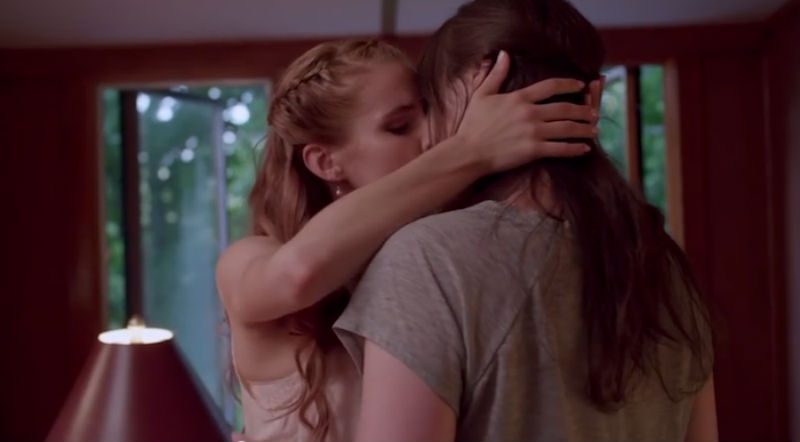
Did you experience any difficulties or hesitations in doing a lesbian love scene with Michelle?
Alex: I didn’t have any hesitations about doing a love scene with Michelle. And at the time, Michelle and I were becoming pretty close friends so we were very comfortable with each other.
Love scenes are always a bit awkward (OK, a lot awkward) but because she and I had a naturally playful relationship and a willingness to laugh at ourselves, we were able to get through it and have a little fun too.
Plus, Michelle’s a total babe! In one of the takes during our love scene, I ripped my shirt off in the heat of the moment and ended up hooking the boom and pulling it down in between me and Michelle.
We were so caught up in our passionate moment that we were both utterly shocked. We nearly lost our minds laughing when we realized what had happened!
Why do you think this film is so important for the masses to see? Do you think it sends a positive and inspiring message for viewers?
Eric: The message in this film is the same as in all my work. For teenagers, for adults struggling with gender identity, sexuality, self-acceptance in any and all forms: As long as you are not harming anyone, you are perfect exactly as you are.
That includes all of the feelings and thoughts we have that are not pretty. The strange, the messy, the perverse, the selfish, even the untenable. As long as it doesn’t result in behaviour that harms others in any way, is not part of the machinery that harms others in any way, we mustn’t be frightened of that part of us because it’s as normal as any part of us.
It’s part of what makes up our real humanity in its entirety. From my experience of others in this world, I don’t seem to be different from most in what I feel and think, I just speak up publicly about it. I can be very generous and loving and compassionate and also very selfish and callous, ignorant and mistake-filled. I am not one thing.
I am not one thought, nor one action. I am made up of a million things all at once as we all are. Hopefully, through thoughtful living, restraint, love of others and self-awareness, our behaviour reflects the finer and most loving qualities and we are able to internally control and work on fixing the baser, less loving traits.
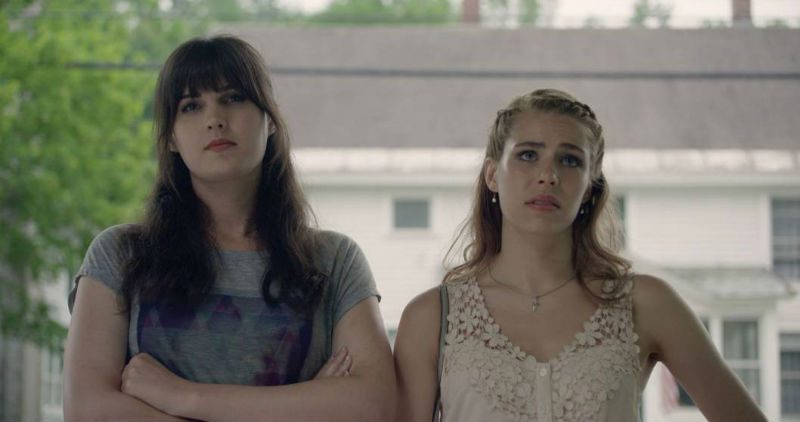
It is very dangerous and destructive in labelling, brand a witch, a saint. It leaves no room for who we really are, how we really experience life, which in turn fosters confusion about who we really are and who others really are; which fosters hate of the self and of others.
I think our only chance is to bury those labels forever in favour of a new one. Human.
Hate is easy. The real courage is in love. When we see ourselves as the same as everyone else, at the core, where it counts, loving is easy.
That’s a unifying message I think is important to continue to speak out in all forms. That’s why it’s important for the masses to see this and any other film that has love as its hope to communicate.

